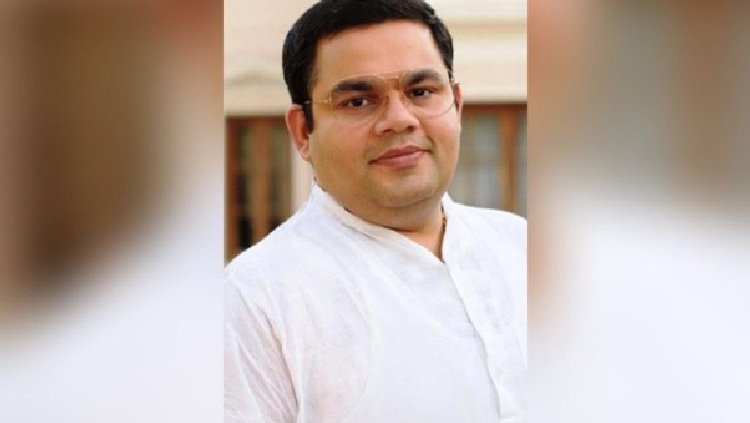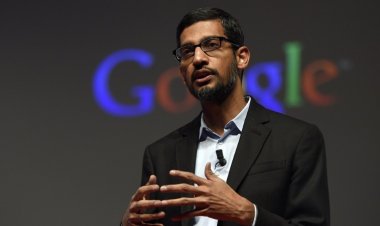Dr. Kislay Panday Advocates Compulsory Legal Education in High Schools
Prominent Supreme Court Lawyer, Dr. Kislay Panday, Calls for Mandatory Legal Education in High Schools to Empower Future Generations with Legal Knowledge

Dr. Kislay Panday, a well-known Supreme Court lawyer, has proposed a revolutionary plan to mandate legal instruction in high schools across the country. This initiative attempts to reduce teenage crime and develop a legal literacy culture from an early age. Dr. Panday's initiative is motivated by the growing concern about the involvement of adolescents in criminal acts, as well as the need to educate young people about their legal rights and duties.
The past few years have witnessed a disturbing surge in criminal activities among teenagers, prompting worries about their limited understanding of legal repercussions and penalties. Dr. Kislay Panday, a prominent advocate at India's Supreme Court, highlights that "Numerous young individuals inadvertently get entangled in criminal hunts due to their limited familiarity with the law." Concurrently, there is a rise in instances where young minds inadvertently become targets of crimes due to their vulnerability."
Juveniles frequently get themselves into legal difficulty as a result of their activities, which are fueled by a lack of understanding of the law. By providing pupils with necessary legal education during their early years, incidents of cyberbullying, substance addiction, and involvement in peer pressure-driven activities could be reduced. "Basic legal education can significantly alter the dynamics," Dr. Panday emphasises, "by guiding youngsters about the boundaries of acceptable behaviour, potential pitfalls, and the importance of making informed choices."
Dr. Kislay Panday's proposal for mandatory legal education in high schools displays a forward-thinking approach to addressing the complex concerns of youth criminality and legal knowledge. The initiative aims to address the core causes of teenage involvement in criminal activities by including legal education in the curriculum. Education has long been recognised as an effective tool for societal transformation, and this plan leverages that ability to form a generation that not only understands but also internalises its legal rights and duties.
Cultivating legal literacy in children from an early age can have a significant impact on the development of ethical and responsible adults. Students with a good understanding of the legal system can effectively navigate difficult circumstances, make educated decisions, and advocate for justice. Furthermore, this effort aims to develop a culture of active citizenship rather than simply generating a generation that avoids illegal behaviour. Young people who are well-versed in the law are more likely to participate constructively in their communities, fight for fairness, and defend the principles of the rule of law.
The proposal to include legal education in high schools seeks to provide students with a solid understanding of the legal system, human rights, and ethical obligations. This proactive strategy has the potential to discourage illegal activity and assist people in navigating complex situations while avoiding legal entanglements. According to Dr. Kislay Panday, an eminent Supreme Court lawyer in India, incorporating legal education into the school curriculum would produce a generation that not only understands its rights but also feels a sense of duty to the community.
The incorporation of legal education into high school curricula aims to build a culture that is aware of legal complexities. This understanding may serve as an obstacle to illegal acts while also encouraging students to engage in appropriate behaviour. Dr. Panday's concept has garnered support among educators, parents, and legal experts who recognise the initiative's potential to significantly reduce overall crime rates. Mandating legal instruction in high schools in a country as huge and diverse as India could have far-reaching consequences. According to Dr. Panday, "Equipping the younger generation with legal knowledge pertains not only to deterring crime but also to cultivating conscientious citizens who make constructive contributions to society." “It's a bet on our collective future."
Experts believe that implementing this idea will reduce youth delinquency and produce a more informed population. Legal literacy would not only empower young minds to make educated decisions, but it would also instil in them a feeling of agency and responsibility to uphold the rule of law.
The proposal for mandatory legal education in high schools is resonating powerfully with numerous stakeholders who see its potential impact on defining the nation's future. The leading lawyer of the country, Dr Kislay Panday advocates for this transformative reform and emphasises the necessity of providing young people with the resources they need to navigate an increasingly complex legal context.
The topmost lawyer of the Supreme Court of India, Dr. Kislay Panday's vision embraces a holistic approach to societal transformation. He highlights the idea that education is about encouraging values, shaping attitudes, and forming responsible citizens by arguing for the incorporation of legal education in high schools. The idea is a call to action, resonating not only with legal professionals, but also with educators, parents, lawmakers, and anyone interested in making our society safer, more just, and more aware. It represents a joint effort to invest in the future by cultivating minds capable of both understanding the law and positively contributing to the world around them.
Disclaimer: The above press release has been provided by HT Syndication. & sociapanews will not be responsible in any way for the content of the same.

 Sumit Rawat
Sumit Rawat 










